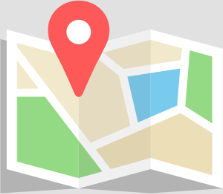Estimated reading time: 4 minutes
Over the past 10 years as a marketeer, there’s one question I’ve been asked more than most: how do I grow my audience?
It’s a question that has captivated humanity since we began trading. A question that has gained more relevance in a digital era where the success of podcasts, YouTube channels, social media, e-commerce, crowdfunding campaigns, and most other things, revolve around the need to have an engaged audience.
We completely understand why it’s a question you are asking regarding your podcast, but, is it really the right question?
The wrong way round
Do you ever check a recipe and jot down the ingredients you need before going shopping? Of course you do, because knowing what your end goal is makes it easier to plan accordingly. Grabbing a bunch of random ingredients and then trying to figure out what you’re cooking may not work out so well.
The same exact thing applies to your podcast. As opposed to cooking up a podcast based on random ingredients you personally love and then trying to grow an audience who also enjoys it, would it not make more sense to ask: ‘how do I build a podcast for my audience?”.
“Everyone is not your customer.” – Seth Godin
So, you started a podcast to talk about your favourite hobbies with some mates. You discuss a mixture of avant garde jazz, small town wrestling and sometimes you review restaurants. You’re 100 episodes in and have started to worry why your mum and partner are the only ones listening weekly.
The thing is, there are a lot of podcasts out there and standing out means giving listeners content they WANT (not necessarily what you want to give them). Having said that, you still need to pick a podcast topic that you’re passionate about and that you can continuously create content about – your podcast isn’t likely to last very long if you’re not committed to the subject. But make sure it’s something that other people will want too. Having a niche and unique value that’s tailored around a pre-described audience will make it easier to identify and target listeners.
More than just demographics
Knowing your audience’s key demographics are important, such as age, location, level of education etc. But don’t stop there. Dig deep into your niche and find out what makes them tick. What social media channels and reddits threads do they follow? What hashtags do they use to connect with their community? Knowing all these subtleties will allow you to find your audience in their ‘natural habitat’. You’ll be able to reach out to them in the areas where they like to interact, while talking to them in the right tone of voice, and covering the interests they enjoy discussing.
Once you’ve done all that research it’s useful to create audience personas. This is a profile of a distinctive ‘person’ representative of your audience. You can carve out not only their demographic, but how they think and feel, or what their behaviours, goals and interests are. Creating various audience personas will help you visualise your audience and remain focused when creating, brainstorming and editing your podcast.
Audience personas are also incredibly useful when building a strategy to monetise your podcast. For more info on monetising your podcast
Stay connected with your audience

Researching your audience is only the start. Next, you need to gain continuous feedback to ensure you’re staying relevant to your audience. After all, things change over time. What your audience was interested in 5 years ago (what social media platforms they favoured, where they shop etc.) will probably be different now.
Getting feedback involves engaging with your audience, asking them questions and listening to their answers/suggestions. You can do this by asking your listeners questions on your podcast, in your newsletter, on your social channels etc.
Here’s some useful feedback you should be looking for:
- Why do they listen to the podcast?
- What do they want from the podcast?
- Is there a gap in the podcast market they wish was filled?
- How do they prefer to engage with your podcast?
- What parts of your podcast do they find the most exciting – or boring?
By implementing their feedback, continuing to listen to your audience, and keeping an eye on your statistics, you can start to gauge the overall impact your podcast is having.
It’s not too late
Knowing your audience is undoubtedly one of the keys to podcast success and we’d always recommend thinking of them first. This is especially true at a time when podcast creation is at an all time high.
If you’ve already started a podcast and hadn’t taken on the above advice though, don’t feel disheartened. It’s not too late. Start to engage with your existing listeners, create audience personas based on the people who already enjoy your show, research your audience and start adapting your podcast to fit into a niche… unless you’ve got a podcast about avant garde jazz, small town wrestling and restaurant reviews, you may just want to start again…

